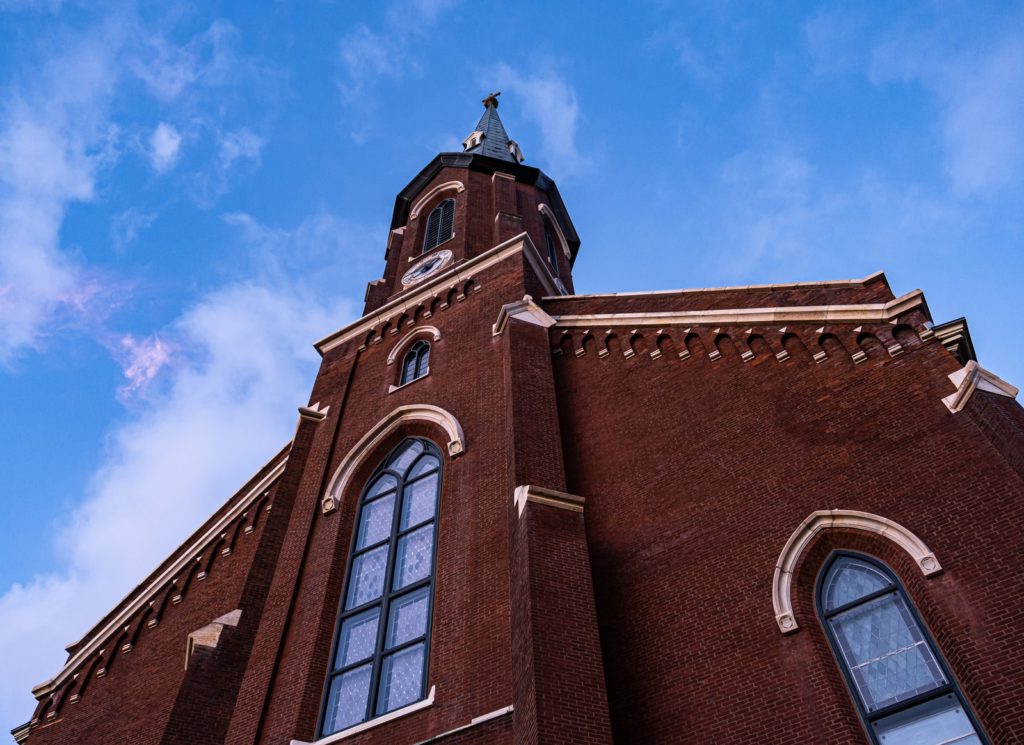Alabama Baptist churches sit right in the buckle of the Bible Belt.
And that belt is a lot bigger than it should be, Rondie Wilks said.
“Next to the other addictions that we preach and teach about — alcohol, pornography, drugs — people see gluttony as much more acceptable in our part of the world,” said Wilks, a fitness trainer and life coach.
But food is an addiction too, she said, and that’s especially evident in Alabama and Mississippi, the two fattest states in the nation.
“According to God’s standards, He wants us to discipline ourselves,” Wilks said.
But that’s something that’s hard for Baptists sometimes, with pastors living stressed-out lives and with doughnuts and casseroles everywhere, she said.
“Our churches aren’t healthy,” said Wilks, whose husband, Bill, is pastor of Northpark Baptist Church, Trussville. “As believers, we should be the healthiest, happiest people in the world, because we know Who we belong to, Who made us. We should be responsible to be healthy.”
But instead, Baptists are often overweight and have all sorts of health issues, she said.
Researchers at Northwestern University said people who attended church or a church-related activity at least once a week were twice as likely to become obese than someone who didn’t go to church, according to Time Magazine.
This might be because people with church involvement have more relationships, thus getting together with people more often to eat, researchers said.
But Ken Ferraro, a professor of sociology at Purdue University, said that from his studies of church weight problems, it could be other things, too.
“It may be that religious affiliation contributes to weight gain, or it may be that people who are overweight seek comfort and companionship in the church,” Ferraro said, according to the Anniston Star.
Whatever the key reason, Baptists are the heaviest group with a 30 percent obesity rate, he said, noting that the data studied was from all Baptist groups (Southern Baptists, National Baptists, etc.).
Based on that research, Baptists have problems, said Dr. Scott Stoll, chairman of the department of physical medicine and rehabilitation at Coordinated Health. “At the church level, pastors and clergy are burdened by the skyrocketing number of their members with chronic diseases such as cancer and heart disease and confess that a growing and disproportionate amount (of) their time is spent caring for their ill members and less time spent in study, discipleship and evangelism,” Stoll said on Fox News’ website.
Some churches are finding that the lack of physical stewardship is also affecting their financial stewardship as staff insurance premiums go up, he said.
What’s the solution? The Church is, he said.
“The intrinsic community and power of small groups are catalytic sources for change that can fuel grassroots movements,” Stoll said. “Couple that with solid faith-based teachings on health, stewardship and a return to foods provided by their Creator and the church could quickly reverse the obesity trend and serve as a positive influence and resource to surrounding communities.”
Wilks said she couldn’t agree more.
She runs a training program called LivingFit that provides eating plans, workouts and devotionals. At her church, small groups participate in it together, an effort called DiscipleFit.
“I just think we don’t educate people on taking care of themselves — body, mind and spirit,” Wilks said. “We need programs. We need small groups. Putting things like that in place is very important.”
In 2010, the Alabama Baptist State Convention passed a resolution on physical health that called for state Baptists to repent of overeating and practice moderation as they eat.
But past that, there’s no accountability, Wilks said. Other denominations, such as the Methodists, have things in place to help, but Baptists don’t.
When DiscipleFit groups meet at Northpark, they study the Bible, hold each other accountable and then work out together, Wilks said.
“Don’t make excuses, make changes. Self-control is one of the fruits of the Spirit,” she said. “We simply feed people God’s word, and God’s word is what does the transformation.”
It’s simple, Wilks said — God made it that way.
“If God made it, we eat it. Put God-made foods in your God-made body,” she said. “We talk about a lot of other things in church, but we don’t talk about our bodies as the temple of God and taking care of them.”
Wilks said she wants the Church to get it and pastors to get it.
“I’m passionate about this, because I’m a pastor’s wife and I know the kind of lifestyle he leads. It’s stressful. It’s demanding. You have to take time out for yourself to be healthy,” she said.
Because of the growing obesity rate among pastors, hypertension and depression have risen and life expectancy has fallen, Wilks said. “It’s really important. I love my husband, and I want him to be around a very long time.”
She said she wants the same for the rest of Alabama’s pastors and church members, too.
For more information about LivingFit or DiscipleFit, visit livingfitonline.com.
______________________________________________
Taking Steps
Sunday morning doughnuts?
- Stop feeding people doughnuts at church and let people eat before they come. We have conditioned ourselves that we have to have food at all church functions. We don’t have to. People find a way to take care of their real hunger.
- Doughnuts have absolutely nothing that your God-made body can use to be healthy — they can pack about 600 calories of pure fat.
- God made plenty of foods for us to enjoy. Try healthy protein bars, small packages of nuts or fruit instead.
Making midweek meals more healthy?
- Choose God-made foods for the meal.
- Always combine carbohydrates and proteins along with vegetables. Provide a lean protein with a larger portion of vegetables and a small portion of a healthy carbohydrate like baked sweet potato waffle fries.
- Make a salad bar available.
- Try to stay away from casseroles and heavy creams, sauces and dressings — they add a lot of fat and unwanted calories.
Snacks for sports groups?
- Sports groups will be spending lots of calories, so high carbohydrates is what your body needs for fuel and energy. Fruit or whole grain granola bars could be a good choice.
Source: Rondie Wilks, livingfitonline.com






Share with others: